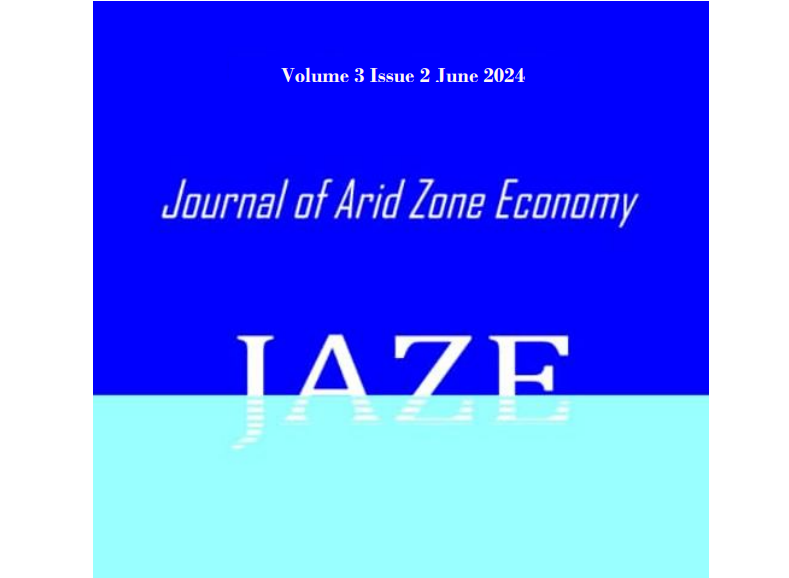Determining the Influence of Climate Change Perceptions of Fishers on Employment Opportunities in Lake Chad, Borno State, Nigeria
Abstract
The study analyzed the influence of perceived climate change by fishers on
employment using three indicators measuring various aspects of employment
perceptions in the Lake Chad area. The indicators which are a scale in a
questionnaire, measured weather employment opportunities in the fishing
industry have (i). become more attractive, (EMP₁) (ii). increased (EMP₂) and
(iii). become more rewarding (EMP₃) over the years as result climate change
in the study area. These indicators were scaled from 5-1 in a questionnaire
with options ranging from more attractive, increased and more rewarding to
less attractive, decreased to less rewarding. The cronback's alpha measure of
reliability was used to ascertain the appropriateness of the items. Then
exploratory factors analysis (EFA) and confirmatory factors analysis (CFA)
were also conducted on these items for internal consistency and confirmed
that all the items are consistent. Separate random sample techniques were
used to draw the respondents to administer questionnaire on. The results from
the structural equation modeling (SEM) analyses show that the regression
weight from income to employment opportunities was negatively significant.
This implies that when the income level of fishers increases, their perceptions
on employment in fishing decrease. Thus, their investment in fishing declines
leading to decline in their fortunes in fishing business, thereby investing their
incomes in other sectors to diversity risk. It was recommended that any
intervention programme either public or private should target the
anthropogenic (human) CGP more than the natural dimension.

Downloads
Published
Issue
Section
License
Copyright (c) 2024 Journal of Arid Zone Economy

This work is licensed under a Creative Commons Attribution 4.0 International License.

